The Relationships Resource Repository
A repository of blogs, podcasts, books, frameworks, academic articles and more
When it comes to relationships, a huge amount has been written and recorded, uploaded and shared. Through the Relationships Resource Repository we share just some of the great resources that have been created. Whether you’re a relationship-centred healthcare practitioner interested in measurement and evaluation, a community weaver wanting to learn about relational approaches to disaster recovery, or a service provider seeking support for building digital connections, we hope you’ll find something useful.
Whilst there’s a lot here, we know it only scratches the surfaces. We’d love it if you’d share the resources that inspire and support you in putting relationships first.
Explore the repository
Tips for exploring the repository
Using the filter button at the top left of the table below, there are a number of ways in which you can explore the resource repository, including:
- By focus area: if there’s a specific topic that you’re interested in zoning in on – like healthcare or academia or criminal justice – click ‘filter’ then where it says ‘Focus Area’ select the area(s) of focus that you’re most interested in where it says ‘select an option’
- By keyword: you can search for specific terms either by clicking on the magnifying glass in the top right corner, or by filtering by keyword. Click ‘filter’ then select ‘keyword’ and choose the area(s) you’re interested in
For each resource you can find a link or attachment to the full resource. You’ll also find a brief summary of what the resource covers, as well as ‘key findings’ as they relate to relationship-centred practice.
To see all the full information, hover and click on the icon of the two arrows on the left of the resource title, or click on the box you’re interested in then click on the arrows in the top right corner.
Highlights from the repository
We think all of the resources in the repository add something valuable to the field of relationship-centred practice. If you’re not sure where to start, here are some suggestions:

Deepening Impact through Relational Philanthropy
Kathleen Boyle Dalen and Tracy L. McFerrin share recommendations for how philanthropists can shift into brave relationship building with communities to deepen impact.
Tags: Funding / Commissioning, Communities

Relational Practice Manifesto
This manifesto, emanating from the Royal College of Psychiatrists, makes a compelling case for relationship-centred practice across our public services and shares a set of simple principles for putting relationships first
Tags: Relationship-Centred Practice, health, systems change

What is social health? The little-known idea that could make all the difference
A deep dive into the importance of ‘social health’ – wellbeing that comes from connection, and how it is as essential as food and water but it is vastly underappreciated.
Tags: Health, Wellbeing, Social Health
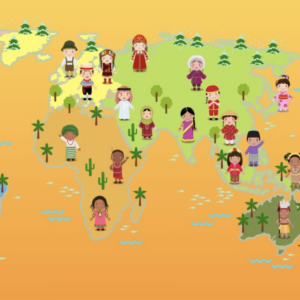
Relationality across cultures
In this blog, Lana Jelenjev explores words and phrases used in cultures across the globe to express ideas of relationality, belonging and interdependence.
Tags: Relationship-Centred Practice
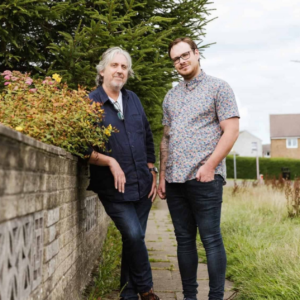
The Nordic Way: Why the alternative Finnish approach to psychosis is going global
This article explains early findings indicating that the Finnish ‘open dialogue’ approach to psychosis – which centers a network of family, friends and mental health practitioners – is more effective than a purely medicine-based approach.
Tags: Mental Health, Evidence, Health, Relationship-Centred Practice

The relational work of systems change
Katherine Milligan and Juanita Zerda explore how to embrace emergence and prioritise relationships in systems change work and share a number of examples
Tags: Systems change, indigenous knowledge, collective impact

Relational Leadership - an experiential online course
We love the look of this 9-part experiential online course, hosted by Thempra, on how social pedagogy and human learning systems can enable you to become an effective relational leader
Tags: Training, leadership, systems change, self-development

The Profound Power of a Simple Hello
Vanessa LoBue details research suggesting that we consistently underestimate the value of small kindnesses to both strangers and the people we know, and that saying hello to a stranger or complimenting someone is bound to make both people’s days a lot better.
Tags: Weak Ties, Belonging, Micro-interactions
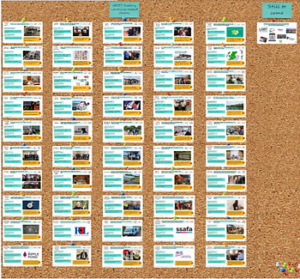
Impact Galleries
Neighbourly Lab shares the power of ‘Impact Galleries’ and their standardised framework, a tool first developed to help evaluate the Armed Forces Covenant Fund Trust’s ‘Tackling Loneliness’ grant.
Tags: Monitoring / Evaluation, Impact, Learning, Evidence, Storytelling
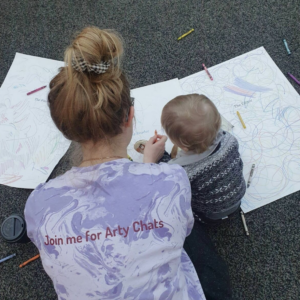
Arty Chats: Cultivating Community at The Forge
Community artist Rebecca Fraser shares insights on how her Arty Chats project is cultivating community connection in Glasgow plus the importance of stewarding and honouring life stories.
Tags: Storytelling, Communities, Creative Arts

Love shows up: past, present, future
Prompted by the Camden event, ‘Love shows up’, where “the role of love in public services” was explored and celebrated, Bryony Shannon traces the past, present and future of love in social care.
Tags: Language, Care / Social Care, Love, Public Services, Relationship-Centred Practice
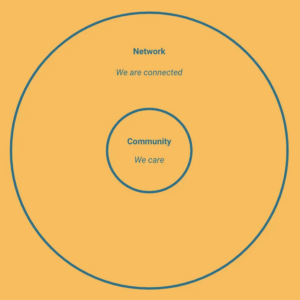
“Networks connect; communities care”
Fabian Pfortmüller explores the difference between networks and communities, and the potential dangers of conflating or treating the two terms as interchangeable.
Tags: Networks / Coalitions, Communities
The Relationships Map
As well as drawing inspiration and ideas from the resources in the repository we think there’s lots that we can learn from one another. So sitting alongside the Resource Repository, we’re developing The Relationships Map, a directory of the brilliant individuals and organisations working towards a more relationship-centred future.
